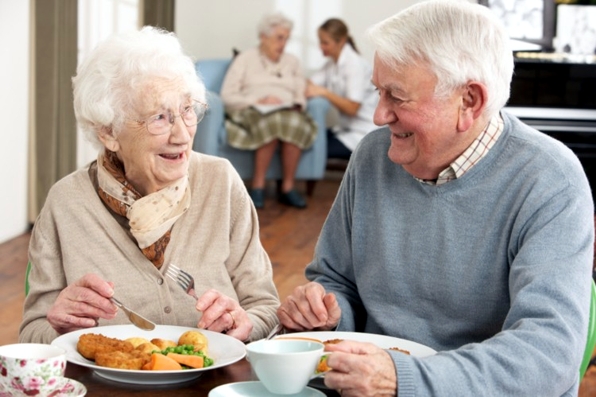A study by researchers at the University of Minnesota Medical School has revealed that coping with the COVID-19 pandemic has increased the prevalence of at least 6 potentially serious eating disorders among the general population of the U.S. – and, by association, the entire developed world…
 Ask a nonogenarian how they got through the Great Depression.
Ask a nonogenarian how they got through the Great Depression.
You may be surprised by the answers you get.
The question now is: are you among those most severely effected by this unsettling trend? The U. of M. team says, “Yes, definitely!”
Alarming consequences
Folks rarely stop to think how serious the threat of eating disorders is in our modern world – pandemic or no pandemic. But the U. of M. researchers are quick to point out that the situation was already bad and is now getting worse as the COVID-19 pandemic drags on, entering what some call Phase III and others claim is already Phase IV.
“Researchers say the most concerning finding indicates a slight increase or the re-emergence of eating disorders, which [already] kill roughly 10,200 people every year – about one person every 52 minutes,” notes an abstract of the study findings published recently in the International Journal of Eating Disorders.
Who are the culprits?
Researchers wanted to identify associations between stress, psychological distress and financial difficulties, and changes in eating behaviors due to the pandemic. Sure enough, they found a number of glaring quantitative and qualitative links:
- Mindless eating and snacking;
- Increased food consumption;
- Generalized decrease in appetite or dietary intake [for healthy foods];
- Eating to cope;
- Pandemic-related reductions in dietary intake; and,
- A re-emergence or marked increase in eating disorder symptoms.
Among other shocking situations they uncovered were:
- About 8 percent of those studied reported extreme unhealthy weight control behaviors;
- 53 percent had less extreme unhealthy weight control behaviors; and,
- 14 percent reported binge eating.
And we already know (use site search to find links to previous posts) that the pandemic has increased junk food consumption and alcohol consumption to dangerous levels among some lock down denizens, while lack of exercise (for which here is really no excuse, whatsoever) has also contributed to the physical and emotional deterioration of millions.
Serious consequences gone unaddressed
The overall result of these eating habit changes has been a marked increase in depressive symptoms which has gone unaddressed while health officials have concentrated on the fundamental issues associated with the spread and consequences of the coronavirus instead.
“Eating disorders have one of the highest mortality rates across all psychiatric health concerns, and therefore, it is important to try to make links between the consequences of the pandemic and disordered eating behaviors,” notes Dr. Melissa Simone, the study’s Lead Investigator.
Recommendations?
Simone and her team say it’s vitally important to consider that, “The economic consequences of the COVID-19 pandemic will likely persist long beyond the dissemination of a vaccine. Because our findings suggest that moderate or severe financial difficulties may be linked with disordered eating behaviors, it is essential that eating disorder preventive interventions and treatment efforts be affordable, easily accessible and widely disseminated to those at heightened risk.”
Indeed, those in charge of keeping track of the economic situation, and predicting how long personal and corporate recovery from the financial effects of the pandemic may take, are already talking in terms of years; perhaps the better part of a decade, perhaps. And that would be possible only with the most effective possible government and industry actions. As always, the experts say, those at the bottom of the socioeconomic ladder will be hardest hit. And there we go with those ‘moderate to severe financial difficulties’ again.
Your mission…
… Should you decide to accept it, is to muse on this situation and determine (now being a much better time than waiting even a minute longer) how hard you are being hit by, and will continue to struggle with, the emotional and financial consequences of the pandemic, and start planning for your personal recovery that that of your family and loved ones.
One thing seems certain: unless governments and industry dramatically change the way they are responding to the financial and mental health needs of their constituents, it’s going to be up to us to take action to protect ourselves.
My take
How much money do you have left in the bank, in your family contingency (‘rainy day’, ’emergency’) fund? Most folks reported, in a recent survey, that they have no savings at all. Not even liquid retirement funds they could access in a real crisis.
Ever notice how many big, new, shiny cars and SUVs there are in the food bank hand-out lines these days? Average folks have been hoodwinked by the banks and car-makers – and who knows how many other sellers of essentially non-essential products and services – to keep on spending, rather than doing what we probably should be doing: Stopping all unnecessary expenditures and shedding any unnecessary assets and appurtenances (especially if they are being bought on credit) we can to lighten the load.
Where are all the older, wiser folks who survived the Great Depression and know how to ‘get along’ in the toughest of times? Alas, the few who remain are in their 90s, and the vast majority are already long gone.
One thing we can do, to keep our minds and bodies in some sort of order, and increase our chances of dealing successfully with the pandemic’s potentially deadly emotional threats, is to focus on eating right and planning for our own ‘recoveries’ from the unavoidable consequences of the pandemic.
As my mother – who recently turned 96 and was a school girl and teen in the ‘Dirty 1930s’ – always says: “Don’t worry about yesterday. It’s gone. Don’t worry about tomorrow. ‘Tomorrow’ never comes. Just concentrate on how to get through today. There’s always a way. You just have to find it.”
~ Maggie J.

